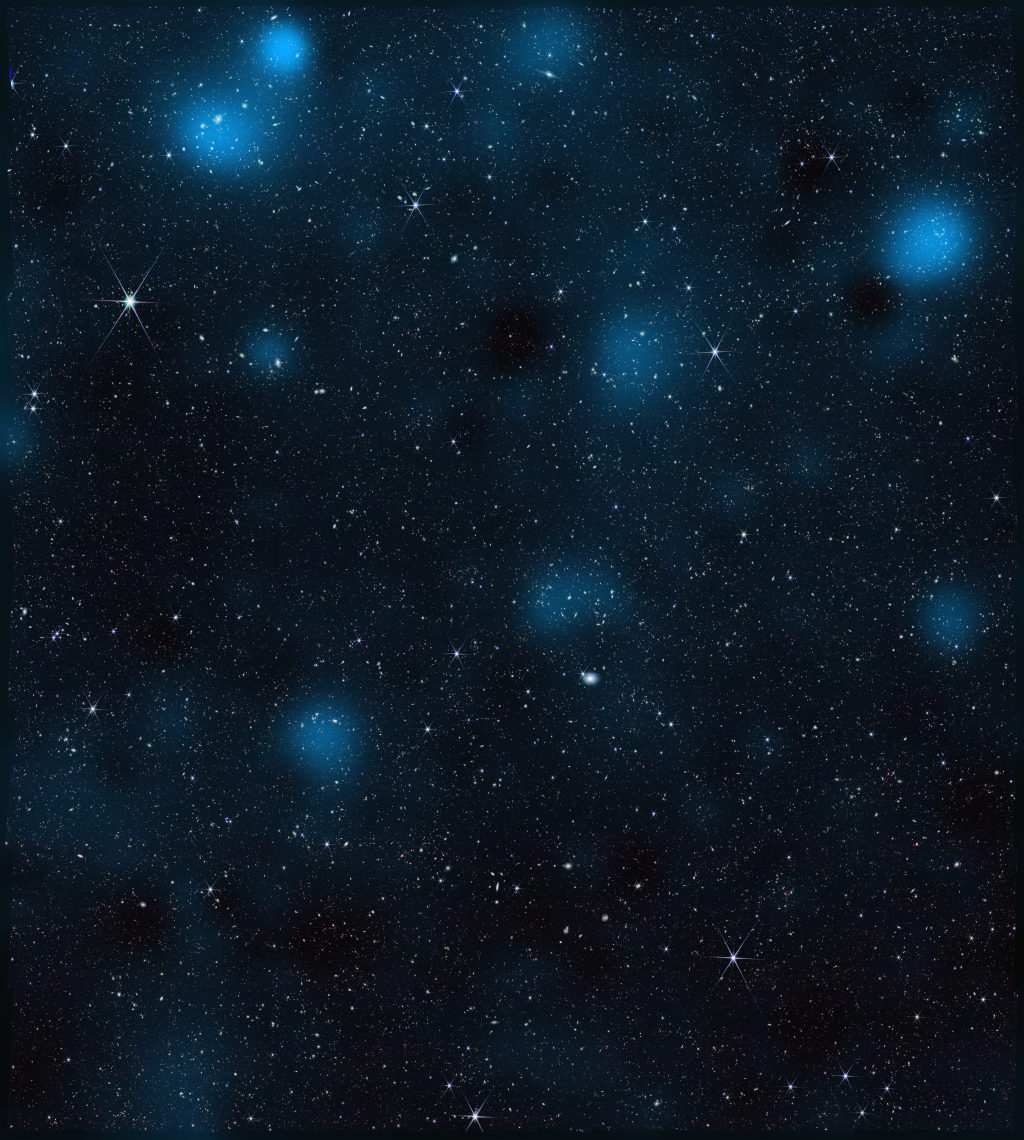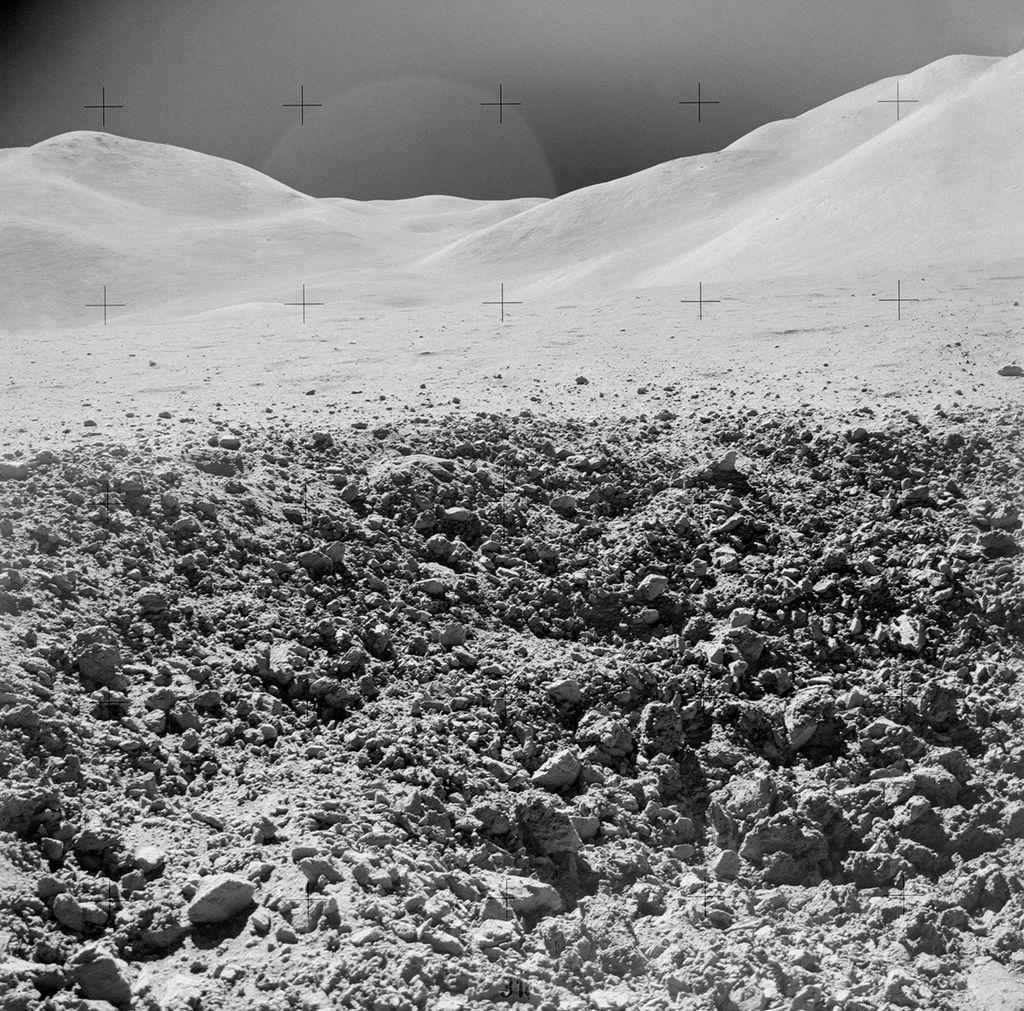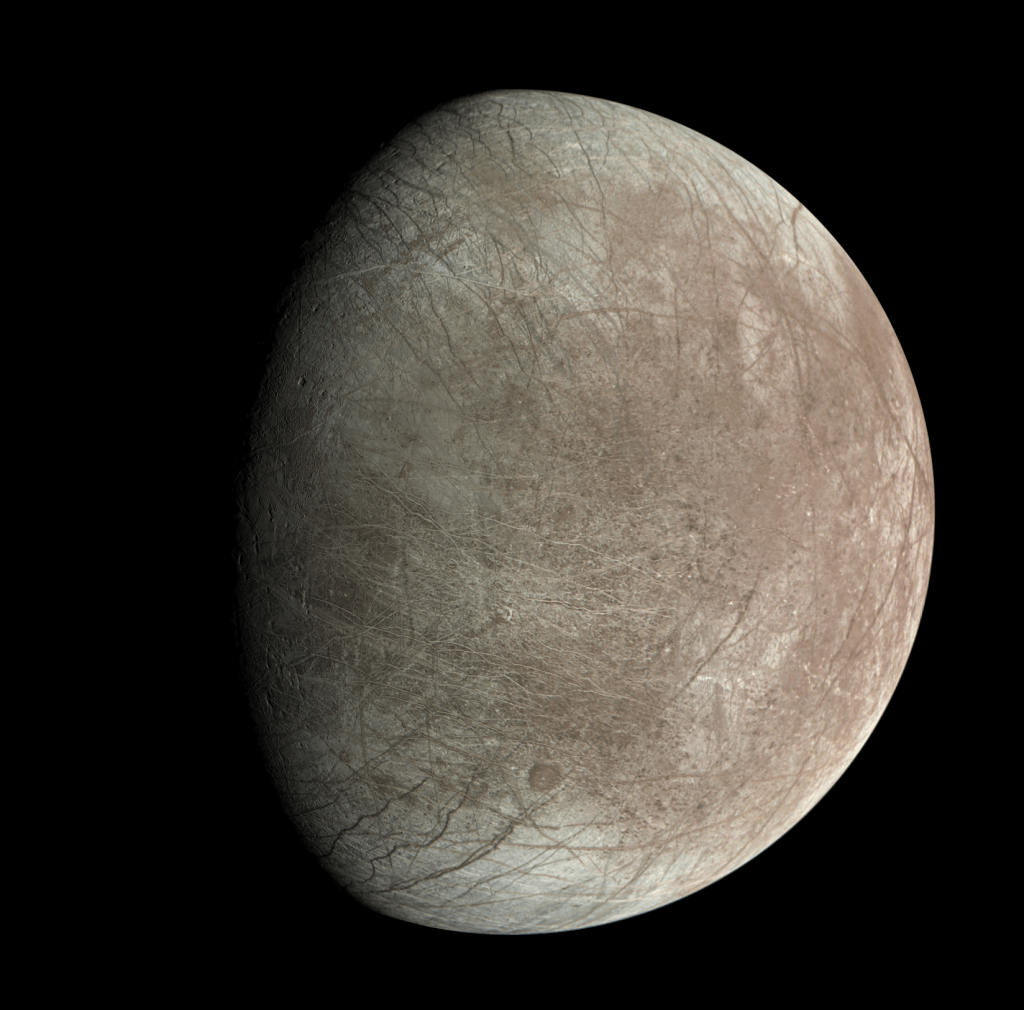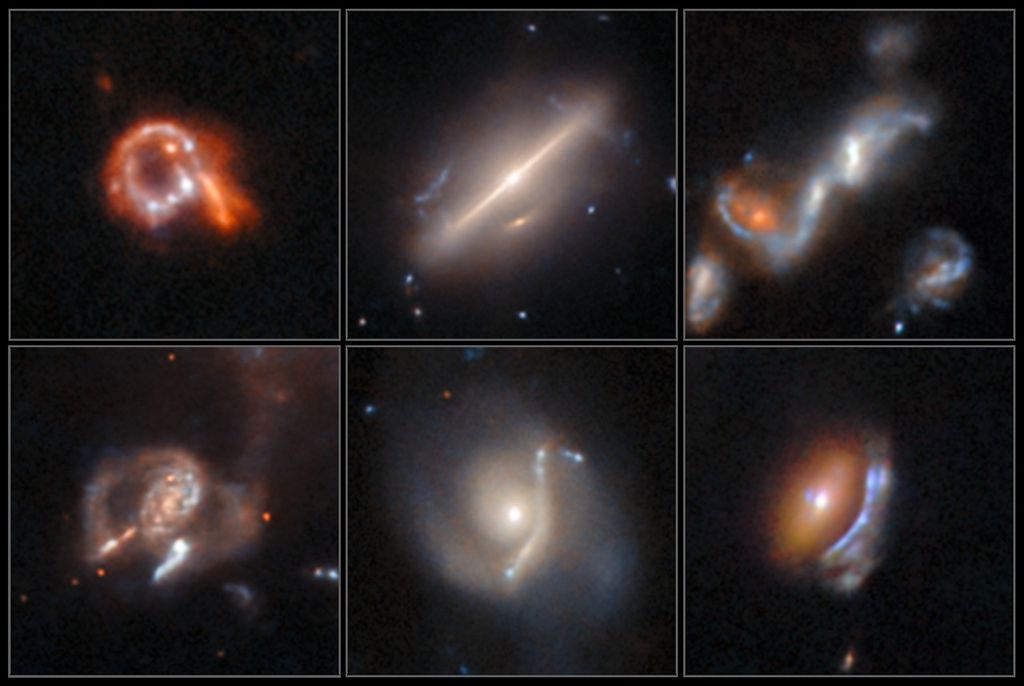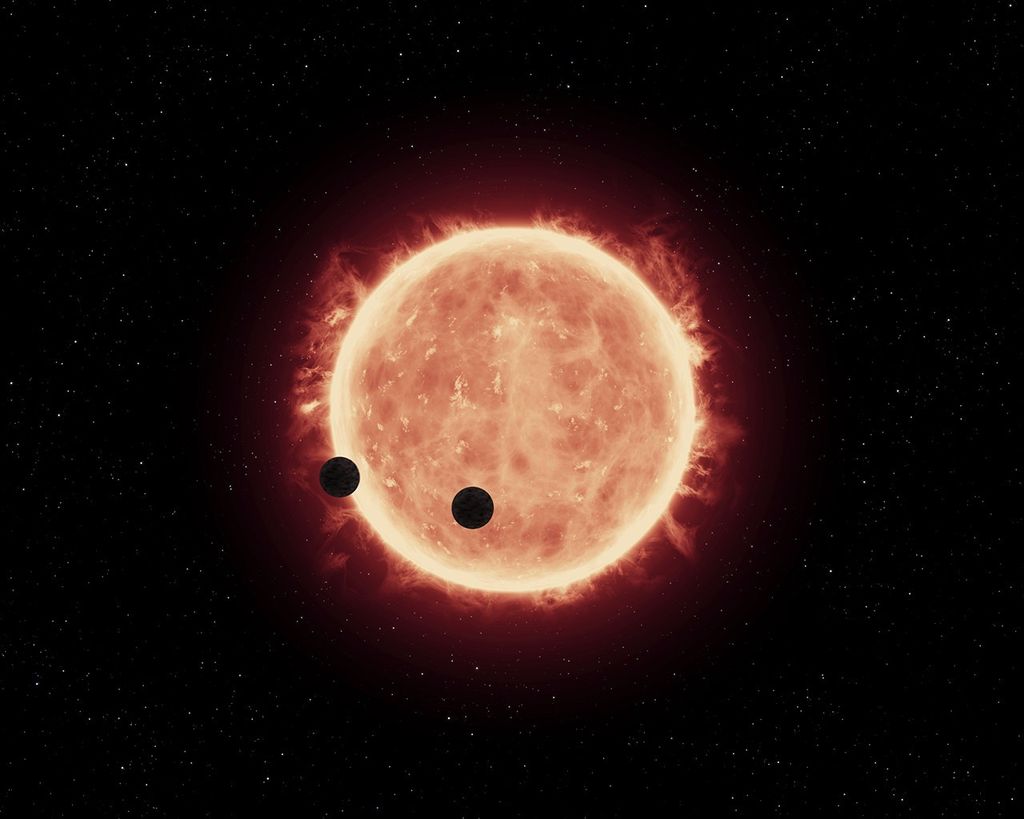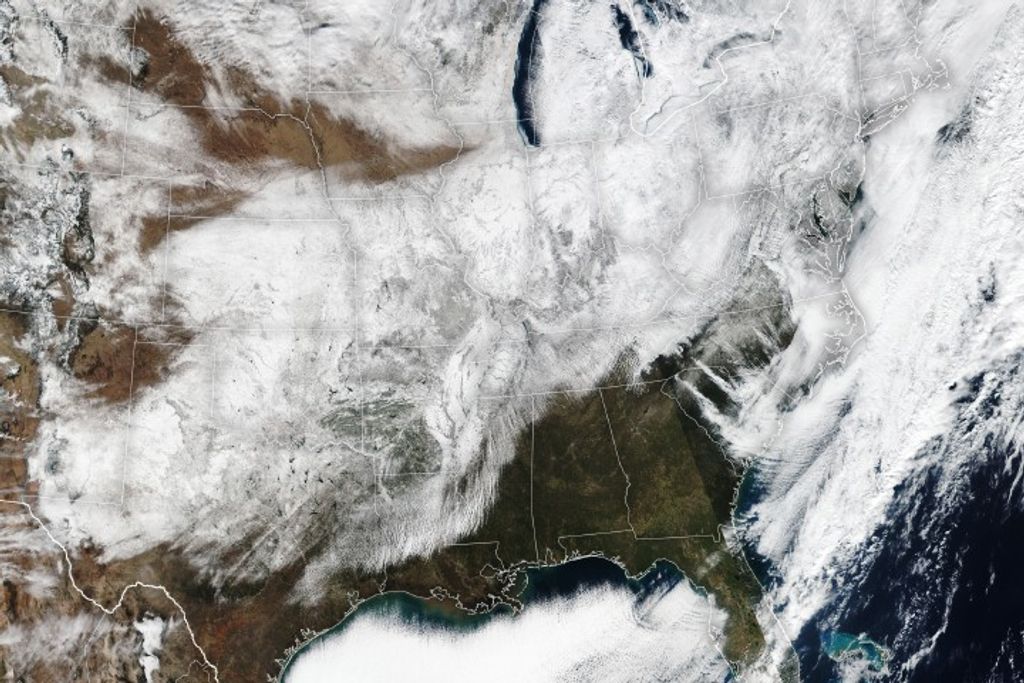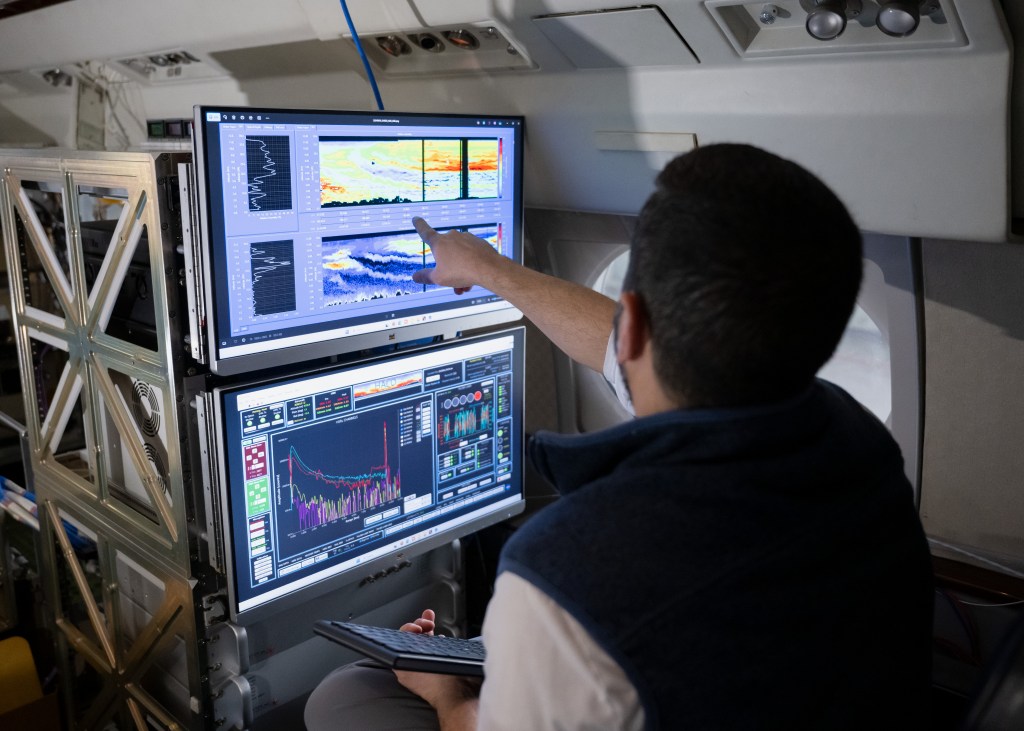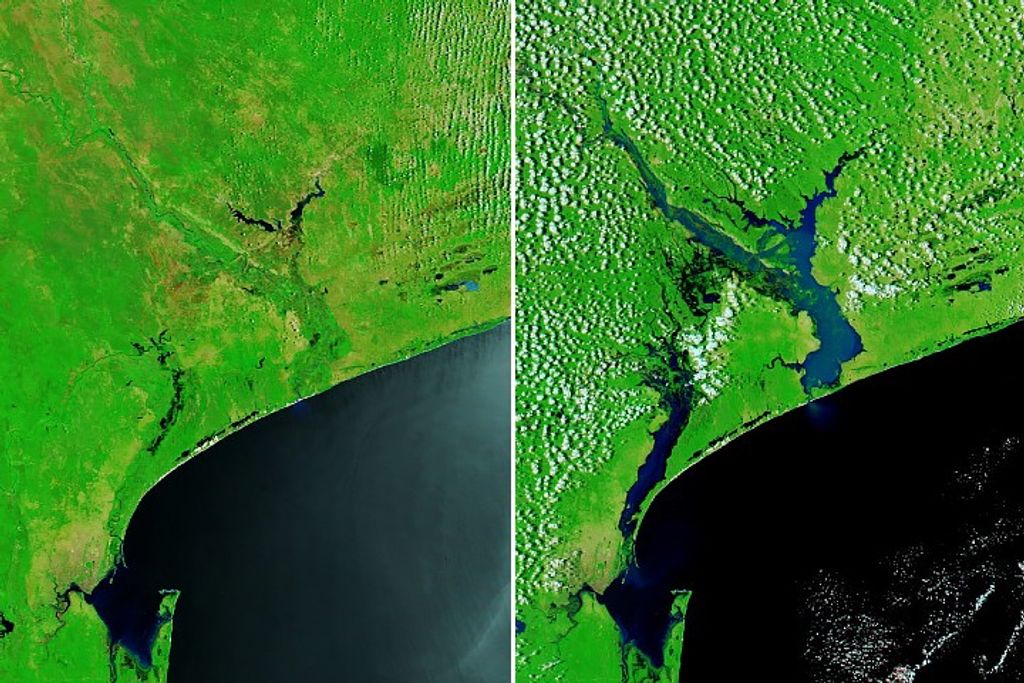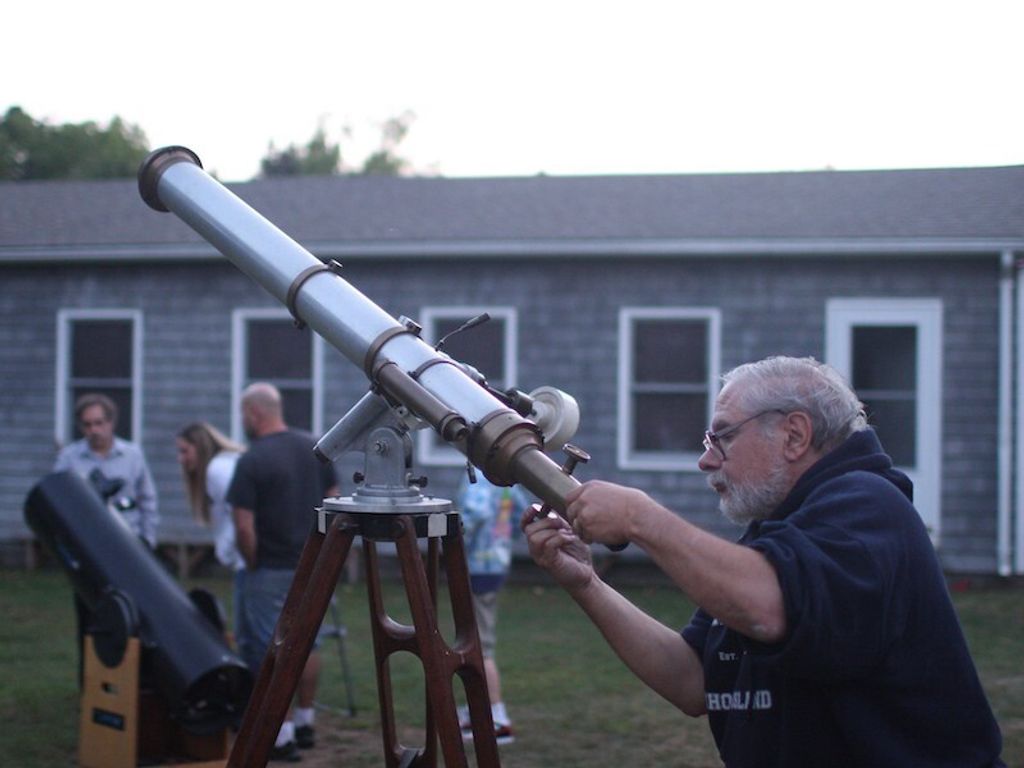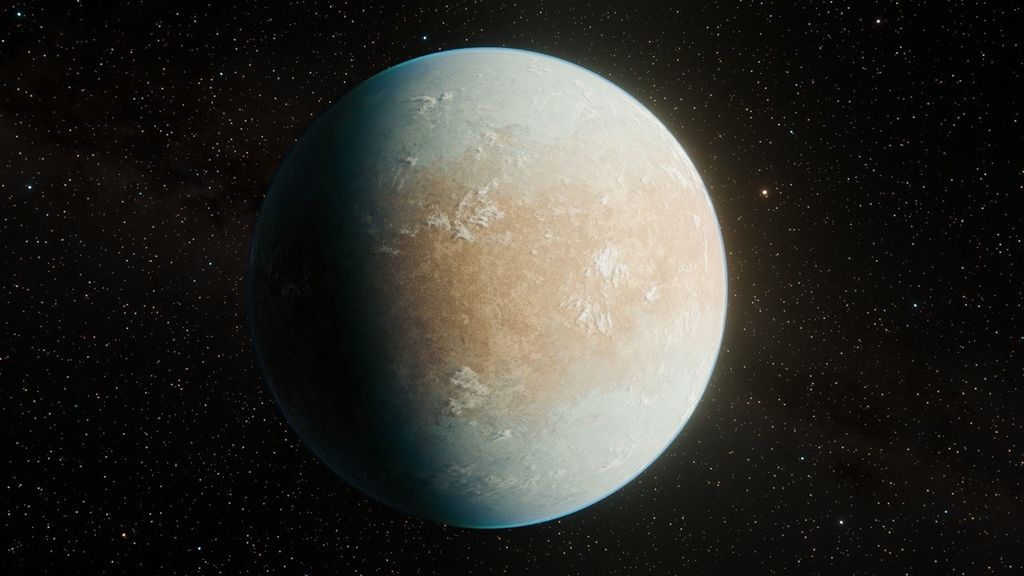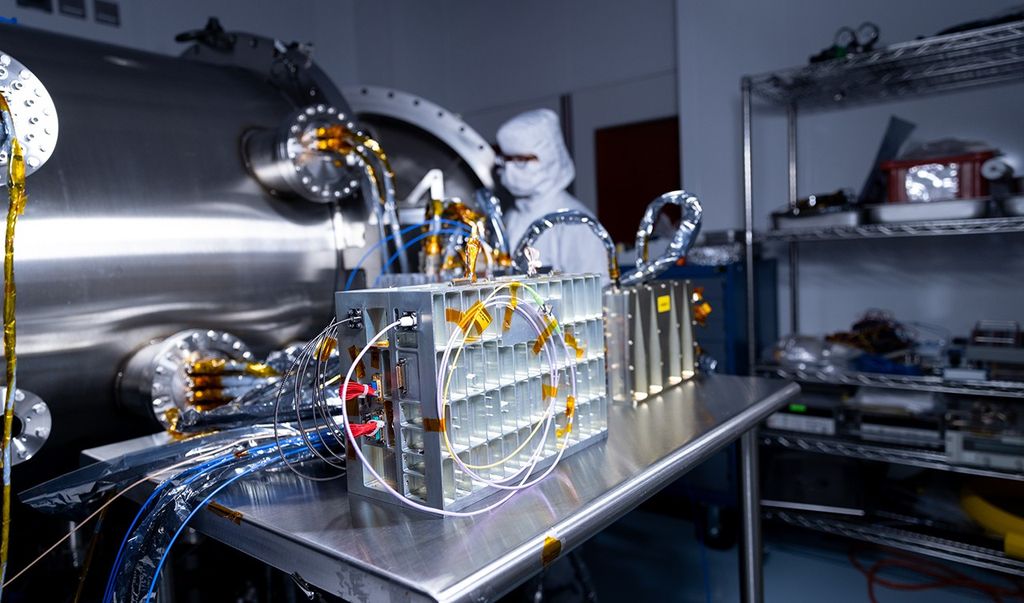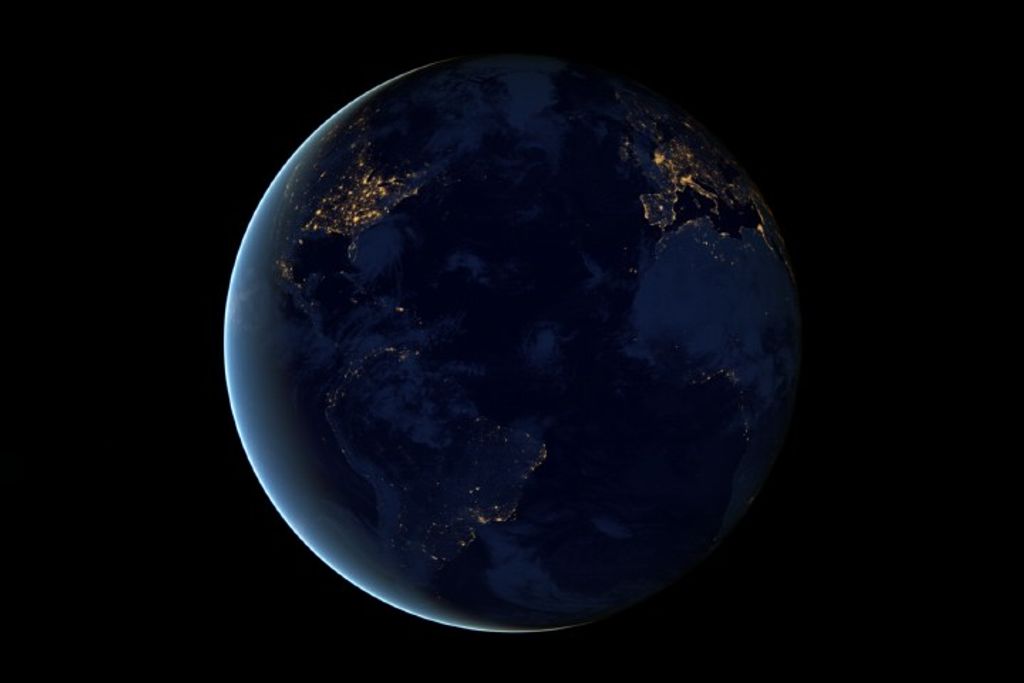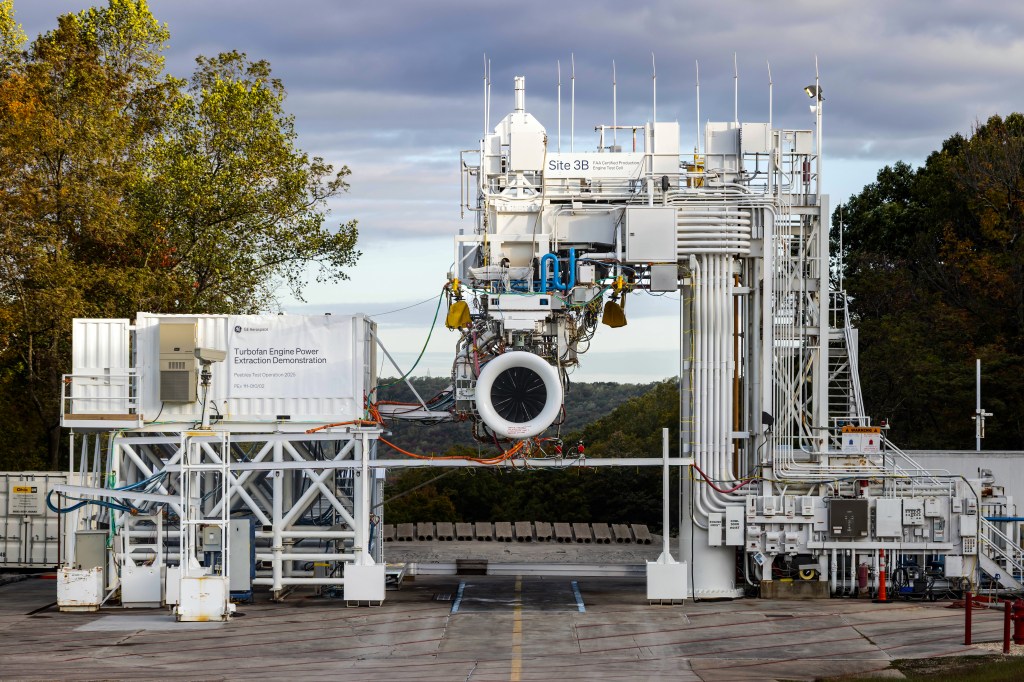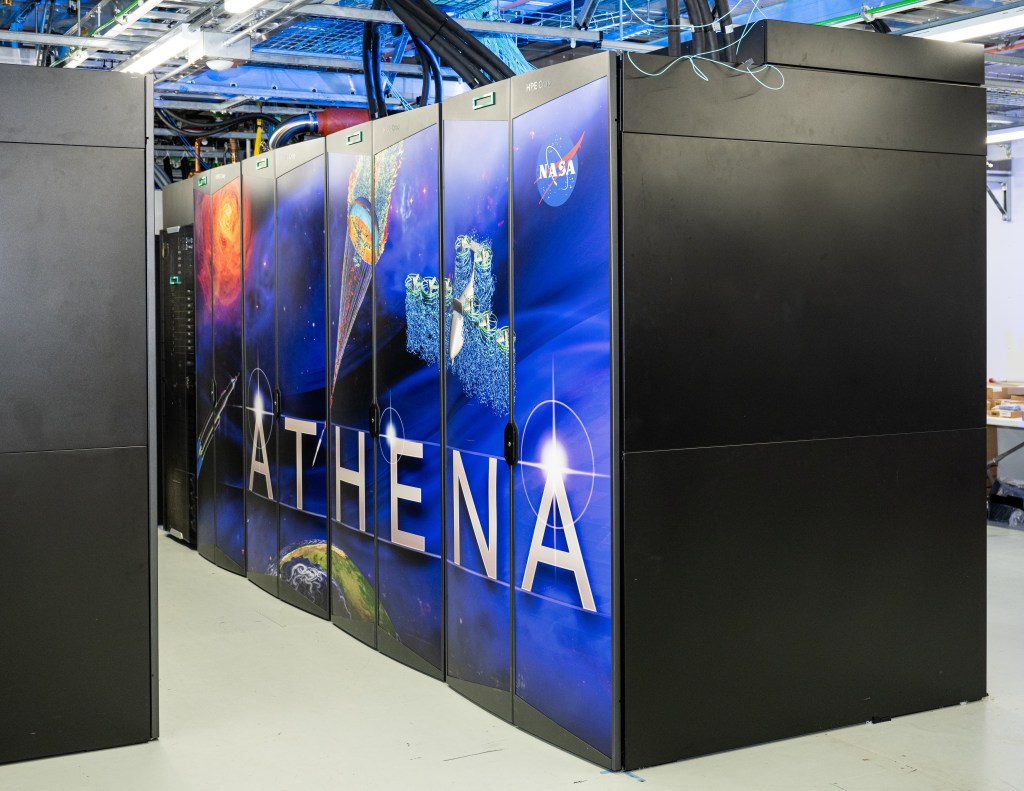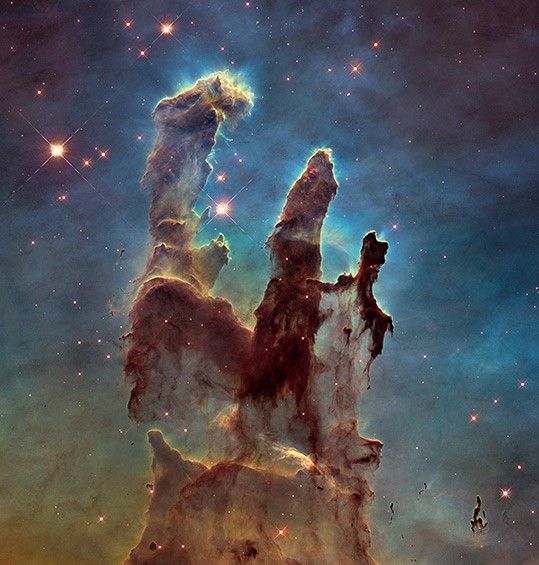1 min read
Complex Cloud of Gas Heated by Shock Waves

A NASA Hubble Space Telescope image of a huge, complex cloud of gas heated by shock waves from jets of gas produced by the birth of a new star. Called Herbig-Haro object #2 (HH- 2) the cloud is a visible manifestation of physical processes that occur early in the evolution of a star.
The photograph was produced from three images obtained with the Wide Field/Planetary Camera (WFIPC). Exposures were taken through different filters to examine light emitted by HH-2 in emission lines of ionized oxygen (coded blue), hydrogen (coded green), and sulfur (coded red). The blue spots represent the highest temperature gas. The red regions identify cooler gas. In the brightest portions of the object, emissions from all three components combine to produce white features.
The image is approximately 11 arc seconds on a side, corresponds to a size of about 480 billion miles (772 billion kilometers) at the object's distance of 1,500 light-years). The smallest features resolved in the image are about 3 billion miles (4.8 billion kilometers) in diameter, comparable to the distance from Earth to the planet Neptune in our Solar System.
About the Object
- R.A. PositionR.A. PositionRight ascension – analogous to longitude – is one component of an object's position.05h 36m 24.0s
- Dec. PositionDec. PositionDeclination – analogous to latitude – is one component of an object's position.-6° 46' 59.99"
- Object NameObject NameA name or catalog number that astronomers use to identify an astronomical object.HH-2
- Release DateApril 14, 1993
- Science ReleaseHST Reveals Growth Processes of Young Star
- CreditCredit: Richard Schwartz (Univ. of Missouri, St. Louis), Martin Cohen (Univ. of California, Berkeley), Burton Jones (Univ. of California, Santa Cruz), Karl-Heinz Bohm (Univ. of Washington), John Raymond and Lee Hartmann (HarvardSmithsonian Center for Astrophysics), Reinhard Mundt (Max-Planck-lnstitut fur Astronomle), Michael Dopita (Mt. Stromlo and Siding Spring Observatories), and Angie Schultz (Washington Univ. at St. Louis/Univ. of Missouri at St. Louis).
Share
Details
Last Updated
Aug 17, 2025
Contact
Media
Claire Andreoli
NASA’s Goddard Space Flight Center
Greenbelt, Maryland
claire.andreoli@nasa.gov

